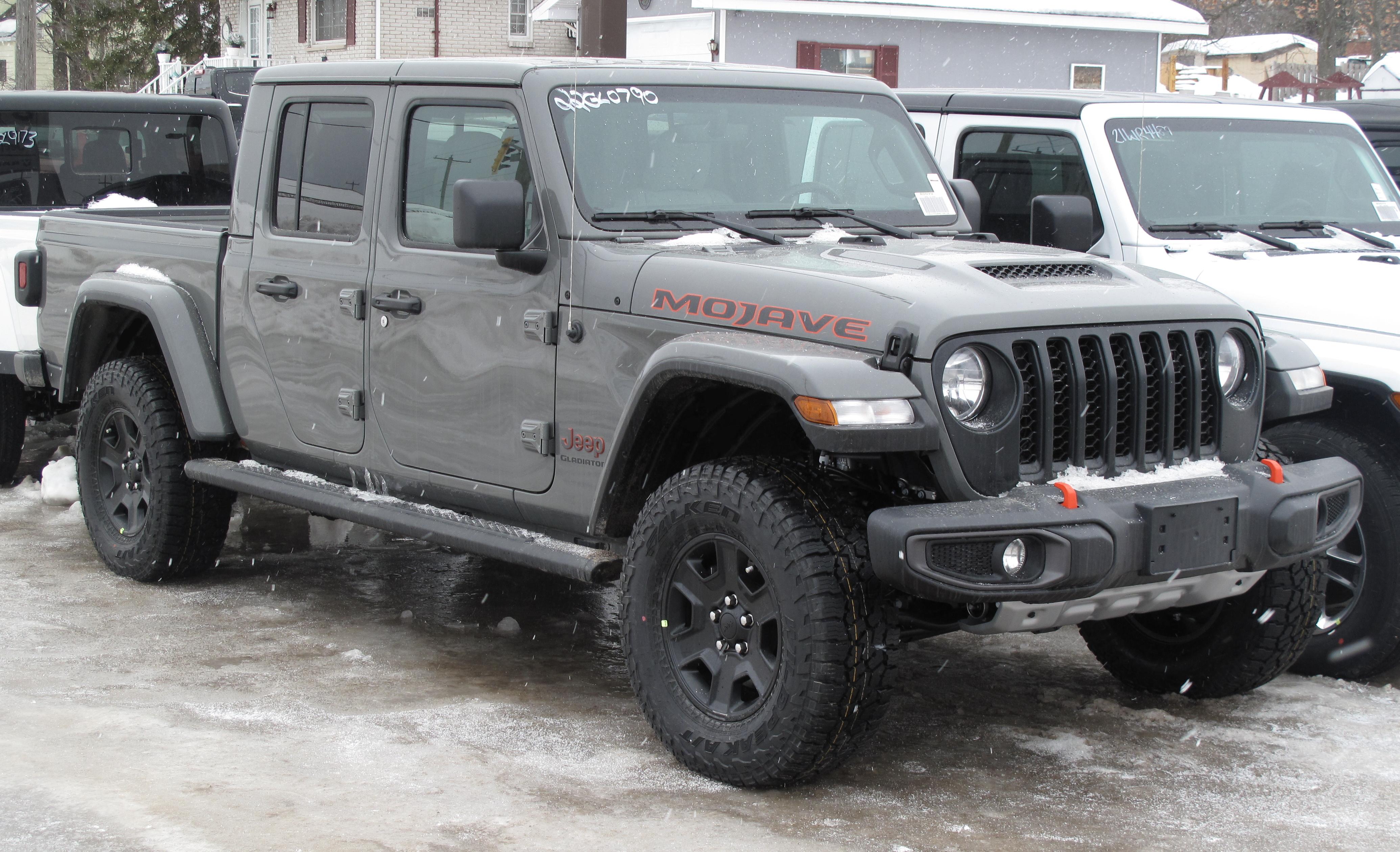How Much Does The Jeep Gladiator Weigh
Have you ever wondered just how much muscle the bold and rugged Jeep Gladiator packs? When it comes to weight, this off-road beast is no lightweight. In this article, we delve into the numbers and uncover the truth about just how much the Jeep Gladiator weighs. Whether you’re a Jeep enthusiast or simply curious about the specs of this iconic truck, prepare to be amazed by the surprising figures behind this powerhouse of a vehicle.
Table of Contents
- Overview of the Jeep Gladiator weight
- Comparison with other trucks in its class
- Factors affecting the weight of the Jeep Gladiator
- Implications of the Jeep Gladiator weight on performance
- Recommendations for managing the weight of the Jeep Gladiator
- Frequently Asked Questions
- Future Outlook
Overview of the Jeep Gladiator weight
The Jeep Gladiator weight varies depending on the trim level and options chosen. The base model Sport trim has a curb weight of around 4,650 pounds, while the high-end Rubicon trim can weigh up to 5,072 pounds. The weight distribution of the Jeep Gladiator is fairly balanced, with most of the weight being centered over the front and rear axles.
One of the reasons for the Jeep Gladiator’s weight is its rugged and durable construction. The body-on-frame design, heavy-duty suspension components, and off-road capabilities all contribute to its heft. Despite its weight, the Jeep Gladiator offers impressive towing and payload capacities, making it a versatile and capable truck for both on and off-road adventures.
For those concerned about fuel efficiency, it’s worth noting that the weight of the Jeep Gladiator can impact its MPG ratings. However, the powerful engine options and aerodynamic design help to mitigate some of the effects of the weight. the weight of the Jeep Gladiator is a tradeoff for its durability, performance, and versatility as a midsize pickup truck.

Comparison with other trucks in its class
When comparing the Jeep Gladiator with other trucks in its class, one key factor to consider is its weight. The Jeep Gladiator weighs in at an impressive 4,650 pounds, making it one of the heavier trucks in its category. This added weight provides the Gladiator with a sturdy and durable build, ideal for off-road adventures and heavy-duty tasks.
Compared to its competitors, such as the Toyota Tacoma and Ford Ranger, the Jeep Gladiator stands out as a robust and substantial option. While the Tacoma weighs in at around 4,000 pounds and the Ranger at roughly 3,900 pounds, the Gladiator’s heftier build gives it a competitive edge in terms of durability and capability. Whether you’re towing heavy loads or navigating challenging terrain, the Gladiator’s weight ensures that it can handle whatever you throw at it.
| Truck Model | Weight (lbs) |
|---|---|
| Jeep Gladiator | 4,650 |
| Toyota Tacoma | 4,000 |
| Ford Ranger | 3,900 |
when looking at the weight of the Jeep Gladiator in comparison to other trucks in its class, it’s evident that the Gladiator holds its own as a heavy-duty and reliable option. With its solid construction and impressive weight, the Gladiator is a standout choice for those seeking a robust and capable truck for their adventures on and off the road.
Factors affecting the weight of the Jeep Gladiator
can vary depending on several key components. The materials used in the construction of the vehicle play a significant role in determining its overall weight. For example, a steel body will be heavier than an aluminum one.
Additionally, the size and type of the engine can also impact the weight of the Jeep Gladiator. A larger engine with more cylinders will generally be heavier than a smaller, more efficient engine. The weight distribution of the vehicle can also affect its overall weight, with a front-heavy design adding extra pounds.
Other factors that can influence the weight of the Jeep Gladiator include the type of suspension system, the size of the wheels, and the inclusion of optional features such as a winch or a roof rack. It’s important to consider these factors when choosing a vehicle, as they can impact performance, fuel efficiency, and handling.
Implications of the Jeep Gladiator weight on performance
The weight of the Jeep Gladiator has a significant impact on its overall performance. With a curb weight starting at around 4,650 pounds, the Gladiator is heavier than many other trucks in its class. This weight can affect various aspects of the vehicle’s performance, such as acceleration, handling, and fuel efficiency.
The increased weight of the Jeep Gladiator can make it slower to accelerate compared to lighter trucks. This is because the engine has to work harder to move the heavier vehicle. However, the Gladiator makes up for this with its impressive towing capacity, which can range from 6,000 to 7,650 pounds depending on the trim level.
In terms of handling, the weight of the Gladiator gives it a more stable and planted feel on the road. The added weight helps to smooth out bumps and improve the overall ride quality. Additionally, the weight distribution of the vehicle is optimized to ensure balanced handling, especially when off-roading.
Recommendations for managing the weight of the Jeep Gladiator
To manage the weight of your Jeep Gladiator effectively, there are a few recommendations to consider. Firstly, pay attention to the payload capacity of your vehicle. This will help you understand how much weight your Jeep can safely carry. It is crucial to not exceed this limit to avoid putting unnecessary strain on the vehicle.
Secondly, consider removing any unnecessary items from your Jeep to lighten the load. Items such as tools, equipment, or luggage that are not needed for your trip can add extra weight to the vehicle. By clearing out these items, you can help reduce the overall weight of the Jeep Gladiator.
Lastly, regular maintenance of your Jeep can also help in managing its weight. Ensure that the tires are properly inflated, as underinflated tires can increase fuel consumption and add extra weight to the vehicle. Additionally, keeping the engine well-maintained can help improve fuel efficiency and overall performance. By following these recommendations, you can effectively manage the weight of your Jeep Gladiator and optimize its performance on the road.
Frequently Asked Questions
Q: What is the weight of the Jeep Gladiator?
A: The weight of the Jeep Gladiator varies depending on the trim level and options, but it typically ranges from around 4,500 to 5,200 pounds.
Q: How does the weight of the Jeep Gladiator compare to other trucks?
A: The Jeep Gladiator is on the heavier side compared to other midsize trucks, but its weight contributes to its rugged and capable off-road performance.
Q: Does the weight of the Jeep Gladiator affect its fuel efficiency?
A: The weight of the Jeep Gladiator does have an impact on its fuel efficiency, as heavier vehicles typically require more fuel to operate.
Q: How does the weight of the Jeep Gladiator affect its towing capacity?
A: The weight of the Jeep Gladiator plays a role in its towing capacity, with heavier models typically able to tow more weight.
Q: Are there any ways to reduce the weight of the Jeep Gladiator?
A: While it’s not recommended to make major modifications to reduce the weight of the Jeep Gladiator, some owners opt for lighter aftermarket components to improve performance.
Future Outlook
the weight of the Jeep Gladiator can vary depending on the specific model and features. It is important to consider the weight of the vehicle when making purchasing decisions, especially if you plan on towing or off-roading. Whether you prefer a lighter or heavier truck, the Jeep Gladiator offers versatility and capability to meet your individual needs. So, next time you hit the road in your robust Gladiator, remember that its weight plays a crucial role in its performance and handling.
